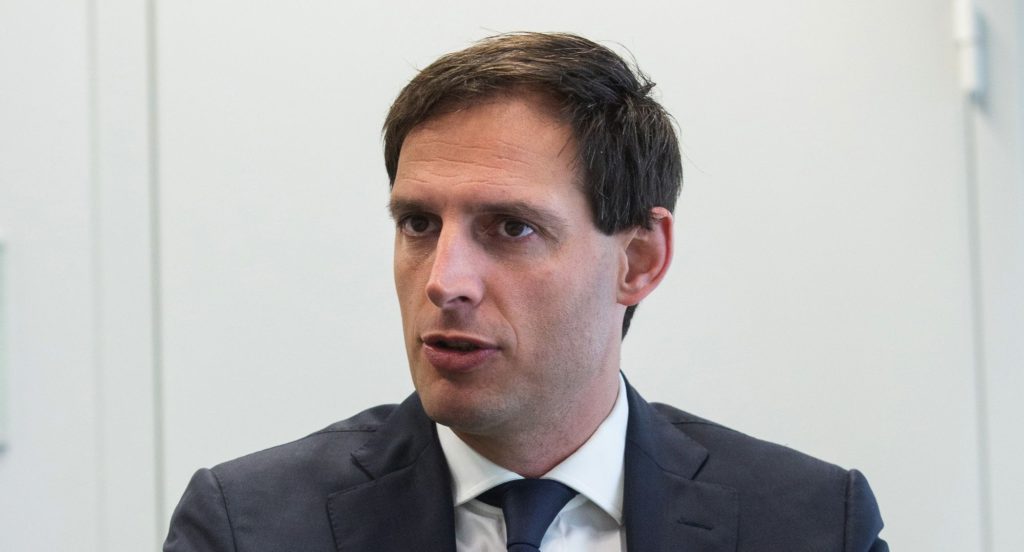(Bloomberg) — The Dutch foreign minister confirmed that the Netherlands and the US are holding discussions on blocking ASML Holding NV from selling to China technology used in making a large chunk of the world’s chips.
“What I can tell you is that it does make sense that you always liaise with friends when certain goods have broader strategic implications and ramifications across the globe,” Foreign Minister Wopke Hoekstra said in a wide-ranging interview in The Hague on Wednesday with a select group of journalists. “Of course you have conversations about that, and that we do.”
American officials are lobbying their Dutch counterparts to bar ASML from selling some of its older deep ultraviolet lithography, or DUV, systems, Bloomberg reported last week, citing people familiar with the matter. These machines are a generation behind cutting-edge but still the most common method in making certain less-advanced chips required by cars, phones, computers and even robots. Washington is focused on banning sales of the most advanced type of DUV technology, immersion lithography machines, the people said.
Read: US Pushes for ASML to Stop Selling Chipmaking Gear to China
The Dutch government, which faces pressure from US officials to expand an existing moratorium on the sale of such systems to the Asian nation, has yet to agree to any additional restrictions. China is the Netherlands’s third-biggest trade partner after Germany and Belgium.
ASML, on the other hand, opposes a ban on sales of DUV lithography equipment to Chinese customers because it is already a mature technology, Peter Wennink, the company’s chief executive officer, said earlier this year. Chinese-based facilities, run by either domestic or foreign companies, account for 14.7% of ASML’s total revenue in 2021, according to company disclosures and data compiled by Bloomberg.
ASML is the world’s top maker of lithography systems, machines that perform a crucial step in the process of creating semiconductors. ASML’s dominance of the market for that type of equipment means that further cutting China off from access to its products would undermine the Asian country’s ambitions to make itself more self-sufficient in production of the crucial electronic components.
Tensions have heightened in recent years between the US and China, the world top two economies. The US has accused China of human rights abuses in its far western Xinjiang region.
Commenting on the Dutch government’s stance on alleged human rights abuses in China, Hoekstra said he is “very worried about many of the news reports.”
“That’s been something I’ve been voicing and many of my colleagues have been voicing vis-a-vis the Chinese,” he said.
China has been accused of running a state-sponsored forced-labor program in Xinjiang under the guise of anti-poverty efforts, sending as many as 1 million Uyghurs to so-called re-education camps. China has repeatedly denied mistreatment of the Uyghurs and says crackdowns in Hong Kong are to prevent insurrection.
More stories like this are available on bloomberg.com
©2022 Bloomberg L.P.











